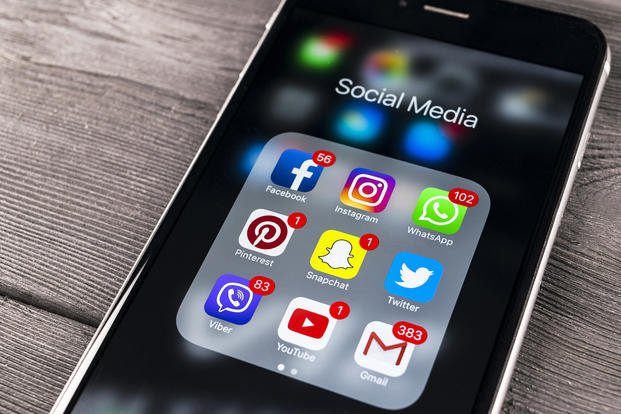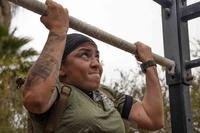I have a jawbone on my wrist. Lest you think I'm a mutant or serial killer, my Jawbone is a fitness tracker.
I keep it on for everything but bathing and swimming. It tells me how much I move and records my activity. The Jawbone app talks to other apps on my phone, and together they put together a fairly complete picture of what I eat, how much I exercise and the quality and quantity of my sleep.
Watch me, please, Big Brother.
The craziest part of all this is that I opted in for Big Brother surveillance. I even paid for it. And it is strangely addicting.
A lot of my fellow Must-Have Parents have these things too. I know this because we post the number of steps we take each day on Facebook. "10,000 steps!" we write. And then our friends click "Like" and comment "Woo-hoo!"
No one has been this excited about our steps since we were in diapers.
My running app has a function that lets people see where I'm running and how fast I'm going, and lets them coach and cheer me on by sending me messages in real-time. But I disabled that function. I don't need stalkers or judgers.
MHPs crave connection. And Woo-hoos.
I'm doing all of this, and enjoying it, because -- like most people -- I crave connection and I know that accountability improves outcomes.
I'm less likely to binge eat if I know I'm going to have to log those Little Debbies in my food diary. I'm more likely to park at the back of the lot if I know I'll get credit for those extra steps.
And I really do like reading all those "Woo-hoos!"
I imagine I probably would run a little faster if I knew my friends were hanging around the virtual world Watching. Judging. Stalking. But for now, the people who drive by as I plod along will suffice.
Social media has become our community shade tree.
Facebook has become our community center, our church, our city park. Twitter has replaced the hair salon as a gossip source. Instagram is like peering into our neighbors' windows, only everything we see is curated and beautiful.
I've read essays and articles about how communities changed after air conditioning was invented.
Before A/C, no one wanted to stay in the house all day and everyone kept their windows open. My grandmother told me that she spent many of her days sitting under a shade tree with other neighborhood moms while their kids played. They talked about parenting, dieting and friends. They knew each other well.
But with the indoors a perfect 72 degrees year-round and the insulated windows sealed tight, it's likely that we never meet our neighbors and we're never privy to their private conversations or arguments.
I think social media, for all its problems, is recreating a community, and I think that's a good thing. Granted, it's a Matrix-y community where our minds travel unimpeded while our bodies stay tethered to laptops in climate-controlled, lonely houses. Still, some community is better than none.
Must-Have Parents crave community more.
Social media is especially important for Must-Have Parents and stay-at-home-parents. Being at home alone with children is isolating.
My mother used to wait by the door for my dad to get home from work. I'm sure she was happy to see him, but she was even happier to not be alone with kids anymore.
For Must-Have Parents, those days can stretch one into the next, with little or no adult contact. My husband was deployed when our oldest was an infant. I didn't know many people in our town and didn't have family nearby. I would go days without talking to anyone. Social media would have been amazing for me had it existed then.
Social media use is significantly higher for the military community.
Research bears out that social media usage is significantly higher for people in the military community, where frequent moves and separations and high spouse unemployment often leave us far from family and friends with limited in-person connections.
The Blue Star Families Military Family Lifestyle Survey last year found 88 percent of respondents use social media to keep in touch with friends and family and 61 percent use it to connect to other military families.
By comparison, this Pew Research report tells us that 74% of internet users in the general population use social media. And this one explains who is using the various platforms.
My grandmother would never have worn a Jawbone on her wrist and she would never have announced her health habits to her community. But eating lunch under that shade tree, smoking a cigarette with her neighbors, she didn't have to.
They were already watching her, maybe judging and maybe stalking. And maybe they were even cheering her on.
Keep Up with the Ins and Outs of Military Life
For the latest military news and tips on military family benefits and more, subscribe to Military.com and have the information you need delivered directly to your inbox.





























